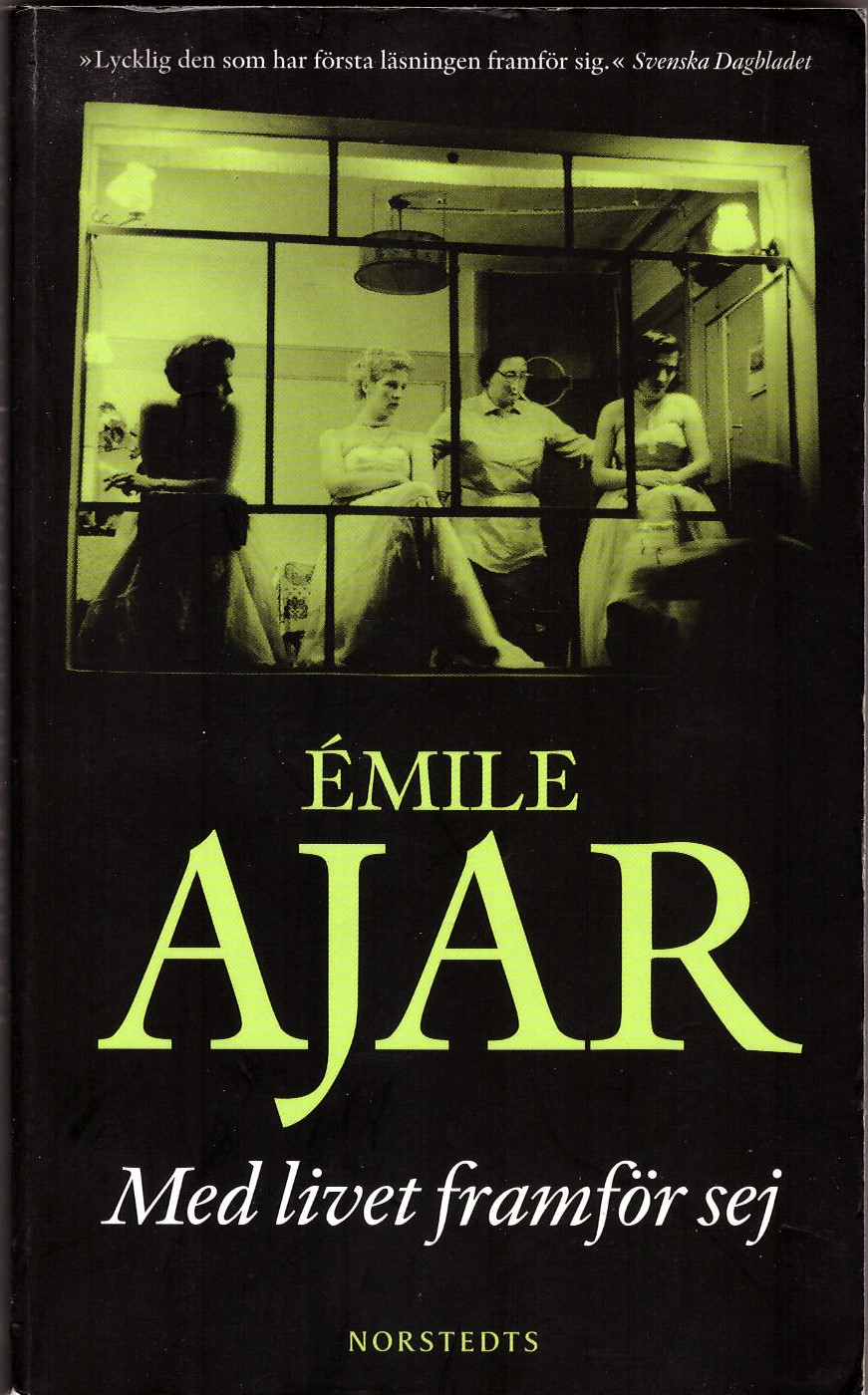Émile Ajar: "La vie devant soi"/
"The Life Before Us"
This book is about Momo, or Mohammed as his full name is, and his rather special growing-up in a very shabby environment in Paris. He is
the son of a prostitute and is being taken care of by the old jewish madame Rosa, who is a surviver from the germans extermination camp in
Auswitz, and has since then made a living as a prostitute in Paris. In her old days she keeps herself alive by taking care of the children of
the prostitutes in the neighbourhood against monthly payments from them. But she is getting older and older, and the relationship between Momo
and madame Rosa is turned around, and it becomes Momo taking care of her. Besides madame Rosa and the other children living in her flat, he
asociates with the the people of the street, carpet sellers, prostitutes, pimps, drug addicts and petty criminals, and last but not least, their
close neighbour Lola who is a transvestite who is having a group of customers with special taste and interests in the Bolougne Forest but
also has a past as a former sengalesan master of boxing.
This is the universe in which Momo grows up, and which he is trying to describe to us, in a very charming language that only a child who
grows up under such circumstances can develop, a strange mixture of precocious life experience and tolerance towards people who have been
living more conventually and subsequently know much less about life, as Momo sees it, and a very strong loyalty towards madame Rosa
and people living like her.
This is a very warm book, a book that will make you feel good, and that you will want to read more than once.
Émile Ajar is a pseudonyme for Romain Gary, (1914-1980).
He is the only writer who has won the highly regarded french prize of litterature Prix Goncourt twice, in spite of that the statutes
for this prize forbid to give it more than once to the same person. But in 1975 when this book was revarded the prize, nobody knew that
Émile Ajar was the pseudonyme for Romain Gary, who had also womn the prize in 1956. It was first after Gary died in 1980
this became known.
|
|

|